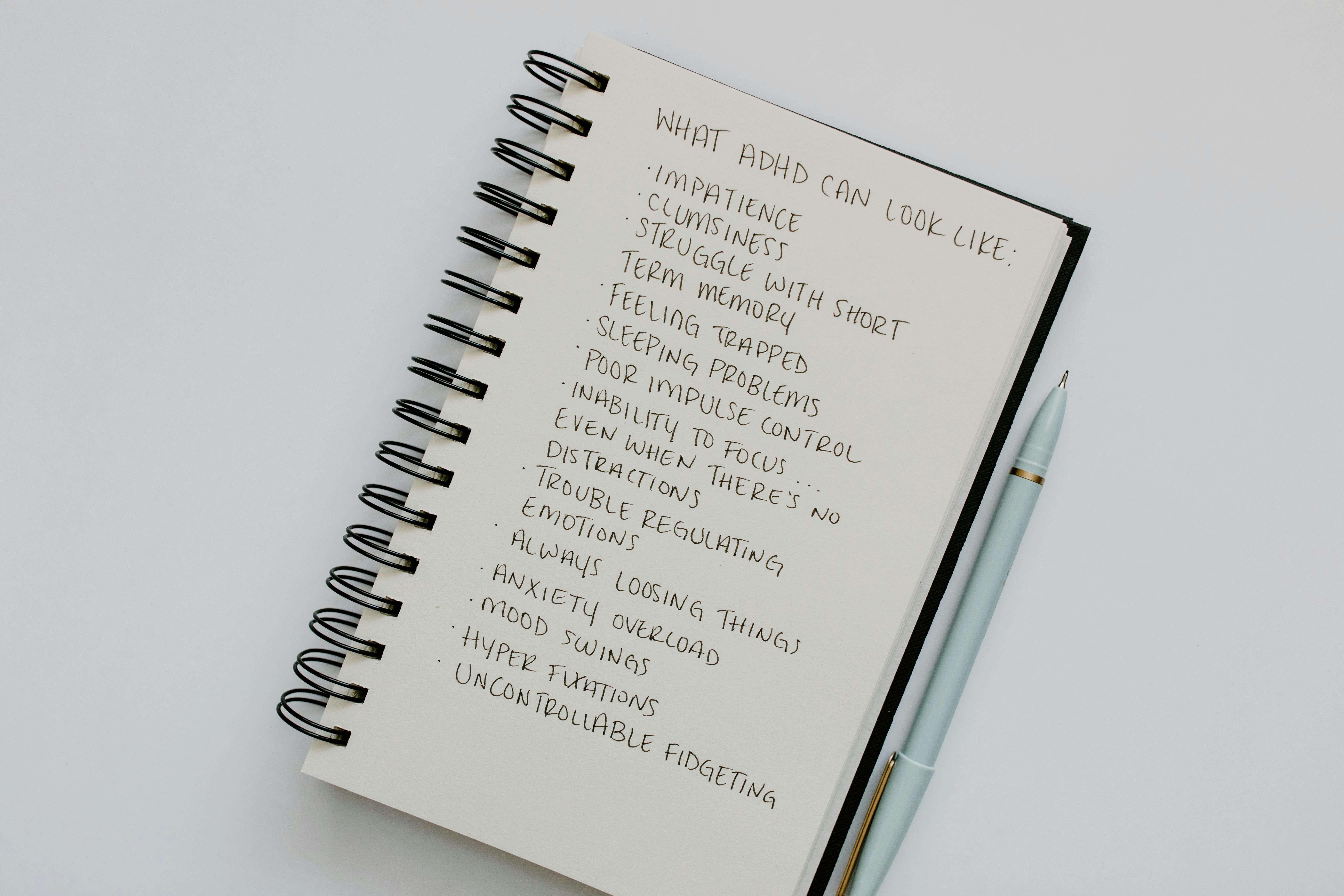What is ADHD?
We all have experienced restlessness, trouble staying focused, or difficulty sitting still. But when these challenges persist, disrupt daily life, and affect relationships, work, and overall well-being, they may be more than just an occasional distraction. It could be Attention-Deficit/Hyperactivity Disorder (ADHD).
ADHD is a neurodevelopmental disorder that affects how the brain develops, functions, and processes information. It can impact an individual's ability to plan, organize, and complete tasks efficiently. While ADHD is commonly diagnosed in childhood, it often continues into adulthood, bringing along additional challenges and, in some cases, co-existing mental health conditions like anxiety, depression, and learning disorders.
It cannot be diagnosed through a single test. Instead, a comprehensive evaluation is required to be conducted by a psychologist, psychiatrist, or pediatrician.
ADHD symptoms can sometimes resemble anxiety, learning disabilities, or mood disorders, therefore, a thorough psychiatric evaluation is necessary to ensure an accurate diagnosis.
Who Can Have ADHD?
ADHD affects both children and adults, though it is often recognized earlier in childhood. Globally, ADHD affects approximately 8% of children and adolescents and around 2.6% of adults.
One major difference is that children typically exhibit more obvious signs, while adults may struggle with internalized symptoms like chronic disorganization, impulsive decision-making, or difficulties maintaining relationships.
ADHD is diagnosed more frequently in boys than in girls, but this does not mean girls are less affected. Instead, their symptoms tend to manifest differently as boys often display hyperactive and impulsive behavior, while girls may struggle more with inattentiveness, low self-esteem, and emotional dysregulation, making diagnosis in females more difficult.
Symptoms of ADHD
ADHD symptoms can vary from mild to severe and typically fall into three main categories:
1. Inattentiveness
- Difficulty paying attention to details or following instructions .
- Easily distracted by surroundings
- Forgetfulness in daily activities
- Struggles with organization and time management
- Frequently losing important items (keys, phone, documents)

2. Hyperactivity
- Constantly fidgeting or tapping hands and feet
- Unable to sit still for extended periods
- Talking excessively, even in situations where quiet is expected
- High energy levels, often seeming as if “driven by a motor”
3. Impulsivity
- Acting without thinking of consequences
- Interrupting conversations or blurting out answers before questions are completed
- Difficulty waiting for their turn in social or work settings
- Making rash decisions without considering long-term effects.
What Causes ADHD?
While the exact cause of ADHD is unknown, research suggests a combination of genetic and environmental factors plays a role.
1. Genetics
ADHD often runs in families. If a parent or sibling has ADHD, the chances are higher that a child might also develop it. Research has identified certain genes that are linked to dopamine regulation; a neurotransmitter that plays a key role in attention and motivation—that could be a factor in ADHD.
2. Environmental Influences
Several external factors have been associated with ADHD, including prenatal exposure to alcohol, tobacco, or drugs, as well as exposure to toxins like lead in early childhood.
3. Brain Development and Function
People with ADHD often show differences in brain structure and activity, especially in areas that manage attention, impulse control, and decision-making. The prefrontal cortex, which is crucial for self-regulation, tends to be less active in those with ADHD.
Treatment of ADHD
ADHD can be effectively managed with the right combination. Treatment typically involves a combination of:
1. Therapy and Behavioral Interventions
Cognitive Behavioral Therapy (CBT), Behavioral therapy and parent training programs help individuals manage impulsivity, emotions, and develop effective coping strategies.
2. Medication
A healthcare professional may prescribe medication to help improve focus, attention, and impulse control.
3. Lifestyle and Holistic Approaches
- Healthy eating habits – A balanced diet rich in proteins, healthy fats, and complex carbohydrates can support brain function.
- Regular exercise – Physical activity helps regulate energy levels and improve focus.
- Adequate sleep – Sleep deprivation can worsen ADHD symptoms. Maintaining a consistent bedtime routine is crucial.
- Mindfulness and relaxation techniques – Practices like meditation, yoga, and journaling can enhance emotional regulation.
How to Support Someone with ADHD

If you know someone living with ADHD, here are ways you can offer support:
1. Encourage Routine and Structure
People with ADHD often struggle with organization and forgetfulness. Helping them set up a structured daily routine, using reminders or planners, can make tasks more manageable.
2. Be Patient and Understanding
Avoid labeling them as "lazy" or "irresponsible." Instead, recognize that ADHD is a neurological condition, not a lack of effort.
3. Support Their Mental and Physical Well-being
Encourage habits that improve focus and reduce stress, such as setting realistic goals and breaking tasks into smaller steps , encouraging participation in ADHD support groups or communities and providing positive reinforcement rather than focusing on their mistakes.
4. Encourage Professional Help
Seeking therapy, coaching, or medical treatment can make a significant difference in managing ADHD. Encouraging loved ones to follow through with their treatment plan, including taking prescribed medication, can help them function better.
Conclusion
ADHD is not just about being easily distracted or overly energetic, it is a complex condition that impacts various parts of everyday life. While it can present challenges, with the right treatment, support, and coping techniques, people with ADHD can truly thrive.
Whether diagnosed in childhood or adulthood, understanding ADHD and fostering a supportive, structured environment can lead to significant improvements.
By raising awareness and breaking the stigma around ADHD, we can create a society where those affected by this condition feel understood, accepted, and empowered.
Find the nearest physical and online therapist near you.
Click https://tranqbay.health/ to get started!
We’ve also included a step-by-step guide to assist you in booking your first session.
https://tranqbay.health/blog/general/speak-with-an-online-therapist-a-step-by-step-guide
Disclaimer:
At Tranqbay, our goal is to enhance well-being by providing mental health care through expert services.
Our articles are carefully researched and verified for accuracy with insights from mental health professionals and reputable organizations.
They are designed for educational purposes and should not be considered a replacement for professional medical advice, diagnosis, or treatment.
